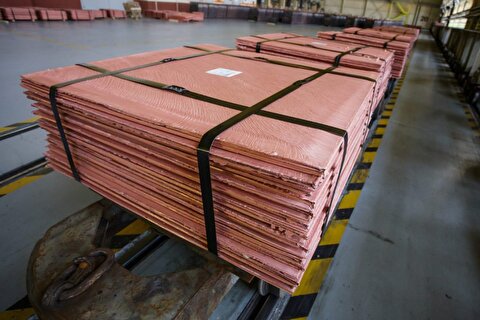
Escalating U.S.-China trade war, a blessing in disguise for Iran’s oil industry?!

The five percent import tariff, which Beijing has imposed on U.S. oil, means that the price of a barrel of oil for Chinese refiners will rise by about $3 per barrel. This would make U.S. oil imports not economically viable in long term.
The new tariffs on the U.S. crude oil, along with the heavy prices of shipping oil from North America, could push the Chinese buyers back toward Iranian crude oil.
As they are already buying oil from the Islamic country despite U.S. sanctions, the Chinese refineries might find it risk worthy to even increase their purchase of cheaper and more accessible Iranian oil rather than the more expensive and hard-to-get U.S. crude.
Trade war and new tariffs
Since more than a year ago, when the tension between the world’s two biggest economies started to escalate, global markets have been shadowed by the concerns of a dismal economic future. Oil prices have been following a downward pattern in the past few months, as the tension between the two sides has been escalating even more.
On Sunday, the new tariffs that the United States and China imposed on each other last month, came into force and for the first time since the beginning of the row, China officially started targeting U.S. crude oil in its tariffs.
In late-August, the U.S. imposed 15 percent tariffs on several Chinese goods - including footwear, smart watches and flat-panel televisions, and China levied five percent tariffs on the U.S crude oil. The issue of imposing tariffs on U.S. oil has come up so many times since the trade war started, however this is the first time that it is coming into effect officially.
Back in June 2018, China announced that it is considering new tariffs on U.S. oil imports. Following that announcement Chinese refiners halted all their imports and China’s imports of U.S. crude oil hit nearly zero in July 2018.
A look at the 2018 situation can tell a lot about the probable reaction of Chinese refineries to the new, actual tariffs. So it won’t be inconsequent to expect them to consider Iranian oil as a reliable and economically reasonable source for supplying their needs.
The latest data released by the Chinese customs indicates that the imports of U.S. oil in the first seven months of 2019 stood at 126,000 barrels per day, a 63 percent fall from the figure for the last year’s January-July period.
The cuts clearly reflect the impact of the trade war on Chinese oil imports from the U.S. even before Beijing imposed the new tariffs.
An opportunity for Iran
A few days after Beijing announced its decision on imposing new tariffs on U.S. crude, the country’s refineries started to look for ways to evade the consequences of the decision.
For instance, in late August, China Petroleum & Chemical Corp (Sinopec) asked the government to be exempted from the tariffs imposed on the U.S. oil.
According to the data from analytics companies Refinitiv and Kpler, Sinopec is expected to ship in eight million barrels of U.S. crude in September and October.
So, if Asia’s biggest refiner doesn’t manage to get a waiver on U.S. oil imports, it would definitely seek to replace the U.S. oil with crude from other sources, and Iran would be the most probable option.
Less expensive and more accessible Iranian oil makes it so attractive that it would be hard not to consider it at the time that the increase in the U.S. oil prices and the distance from the United States is making the American crude less and less attractive for the Asian country’s market.
Let’s not forget that, despite all the Trump’s attempts and threats, China hasn’t stopped its oil imports from Iran even after the waivers on imports of oil from Iran expires in May.
Now considering the recent escalations of the trade war between U.S. and China, it is more than likely that China would not only supply the needs of its refineries by increasing oil purchases from Iran, but also challenge one of Trump's most important foreign policies.


Gold price eases after Trump downplays clash with Fed chair Powell

Copper price hits new record as tariff deadline looms

Chile’s 2025 vote puts mining sector’s future on the line

Brazil producers look to halt pig iron output as US tariff threat crimps demand

Gold price could hit $4,000 by year-end, says Fidelity

Three workers rescued after 60 hours trapped in Canada mine

US targets mine waste to boost local critical minerals supply

Glencore workers brace for layoffs on looming Mount Isa shutdown

Column: EU’s pledge for $250 billion of US energy imports is delusional

Trump tariff surprise triggers implosion of massive copper trade

Maxus expands land holdings at Quarry antimony project in British Columbia

BHP, Vale accused of ‘cheating’ UK law firm out of $1.7 billion in fees

Southern Copper eyes $10.2B Mexico investment pending talks

American Tungsten gets site remediation plan approved for Ima mine in Idaho

Kinross divests entire 12% stake in Yukon-focused White Gold

Gold price could hit $4,000 by year-end, says Fidelity

Southern Copper expects turmoil from US-China trade war to hit copper

Ramaco Resources secures five year permit for Brook rare earth mine in Wyoming

Column: EU’s pledge for $250 billion of US energy imports is delusional

Trump tariff surprise triggers implosion of massive copper trade

Maxus expands land holdings at Quarry antimony project in British Columbia

BHP, Vale accused of ‘cheating’ UK law firm out of $1.7 billion in fees

Southern Copper eyes $10.2B Mexico investment pending talks

American Tungsten gets site remediation plan approved for Ima mine in Idaho

Kinross divests entire 12% stake in Yukon-focused White Gold

Gold price could hit $4,000 by year-end, says Fidelity

Southern Copper expects turmoil from US-China trade war to hit copper

Ramaco Resources secures five year permit for Brook rare earth mine in Wyoming














